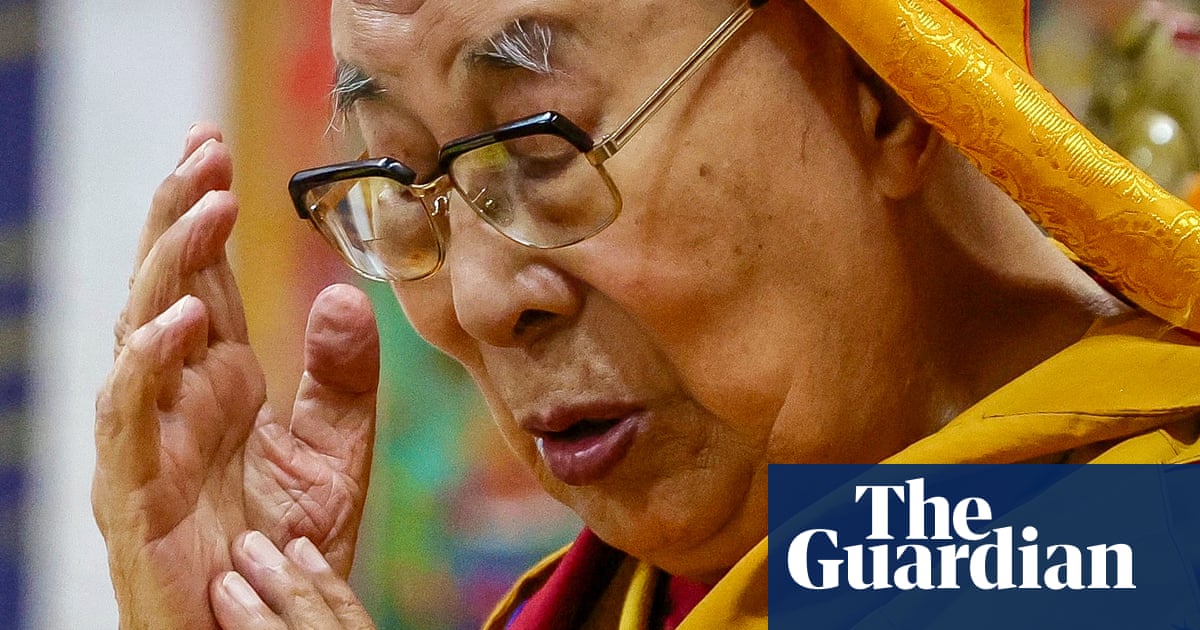Global Leaders Unite to Celebrate the Dalai Lama's 90th Birthday Amid Geopolitical Tensions

On Sunday, leaders from India, the United States, and Taiwan gathered to express their heartfelt support for the Dalai Lama, the exiled spiritual leader of Tibet, as he celebrated his milestone 90th birthday. This significant anniversary has not only highlighted the Dalai Lama's enduring legacy but has also brought to the forefront pressing geopolitical issues concerning Tibet's future.
Tibetans are increasingly concerned that China may attempt to install a rival successor to the Dalai Lama. Such a move would significantly bolster Beijing's control over Tibet, a region that Chinese forces occupied in 1950 and have governed ever since. The situation has raised alarms among the Tibetan community, who fear that their cultural and religious heritage may be further threatened.
The Dalai Lama, who humbly refers to himself as a “simple Buddhist monk,” currently resides in India. His life of exile began in 1959 when he fled to India along with thousands of fellow Tibetans, escaping the violent crackdown on the uprising in Tibet's capital, Lhasa. His office, based in India, has consistently asserted that only it possesses the authority to identify his eventual successor, a fact that challenges China's assertions of control.
During the celebrations in the serene Himalayan hill town where the Dalai Lama has lived for decades, Indian Prime Minister Narendra Modi sent warm wishes to the revered leader, stating, “I join 1.4 billion Indians in extending our warmest wishes to His Holiness the Dalai Lama on his 90th birthday.” Modi highlighted the Dalai Lama’s role as a global beacon of love, compassion, patience, and moral integrity, emphasizing the spiritual leader's impact on humanity.
China, however, reaffirmed its stance on Wednesday, insisting that it would have the ultimate authority over the succession of the Dalai Lama, underlining the ongoing tensions surrounding his legacy.
U.S. Secretary of State Marco Rubio, also present at the celebrations, issued a statement reaffirming Washington’s commitment to promoting and protecting the fundamental human rights of Tibetans. He emphasized the importance of preserving Tibetan culture, language, and the religious freedom to choose and venerate spiritual leaders without external interference.
Adding to the international support, Taiwan's President, Lai Ching-te, delivered remarks that resonated with the themes of freedom and democracy, both of which he asserted are exemplified by the Dalai Lama. Lai’s statements are particularly significant given Taiwan's strained relationship with China, which claims the island as part of its territory and has not ruled out the use of force to assert its claims.
Messages of support from three former U.S. Presidents were also broadcast during the event, further solidifying the Dalai Lama's global standing. Bill Clinton expressed gratitude for the Dalai Lama’s efforts to promote a kinder world amidst division, while George W. Bush remarked on the need for his spirit of kindness in today’s troubled world. Barack Obama humorously called him the “youngest 90-year-old” he knows, acknowledging the Dalai Lama's long-standing role as a compassionate leader on the world stage.
The gathering of such influential leaders at this pivotal moment not only underscores the Dalai Lama’s remarkable influence but also reflects the complex interplay between religious leadership and global politics, particularly as China’s ambitions continue to loom large over the region.


















